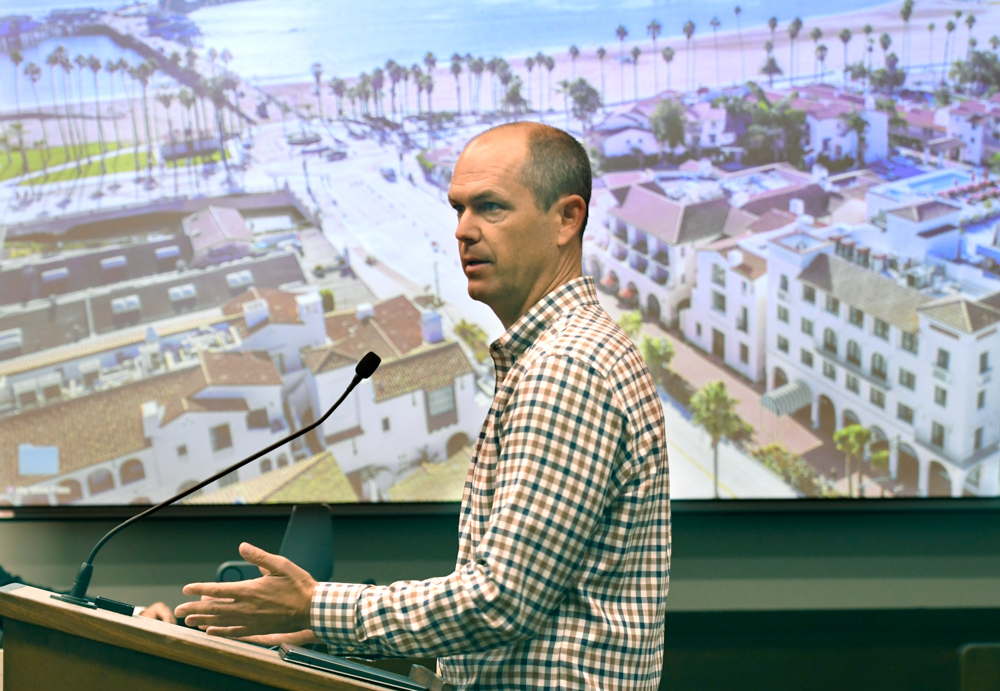Missing Middle-Class Housing Is Still Missing
City Approves High-End Rental Project for Garden and Anapamu Streets

Although a majority of the Santa Barbara City Planning Commission signed off on a controversial high-density rental housing development slated for downtown, it was clear many commissioners harbored serious misgivings that the rents to be charged by developer Greg Reitz would exceed the grasp of many working Santa Barbarans. While the commissioners voted 4-2 that the 52-unit development slated for eight lots at Garden and Anapamu streets met the intent of the city’s general plan, many of the commissioners expressed concern that new state laws — designed to prevent boards and commissions from blocking new housing development — denied them the legal grounds to voice objections.
Commissioner Deborah Schwartz, who voted for the project, found herself in the awkward position of pleading directly with the developer not to include the sort of amenities that would enable him to charge higher rents. She was concerned that not enough housing is being built for the “missing middle,” people making 80-120 percent of the annual median income (AMI). Commissioners Mike Jordan and Sheila Lodge voted against the project, stating the high-density development did not address the city’s need for workforce housing because it was too expensive. According to Reitz, the starting rent for studios would be $1,750, one-bedrooms would range from $1,890 to $2,500, and two-bedrooms would top out at $3,500.
Reitz developed another high-end AUD (Average Unit-Size Density) development on outer State Street, the 90-unit Marc, which is flush with amenities and likewise charges high rents. In response to The Marc, the first and, to date, only AUD development built, a council subcommittee has recommended changing the rules governing AUDs. Proposed are new requirements that up to 15 percent of the units be rented to people making between 80 and 120 percent the AMI. Reitz has said such a requirement would kill his project. Likewise, the new proposals include provisions giving the Planning Commission greater discretion over such nebulous issues as neighborhood compatibility. Those changes will be reviewed by the Planning Commission this week.



